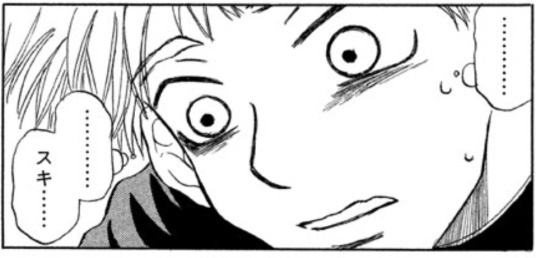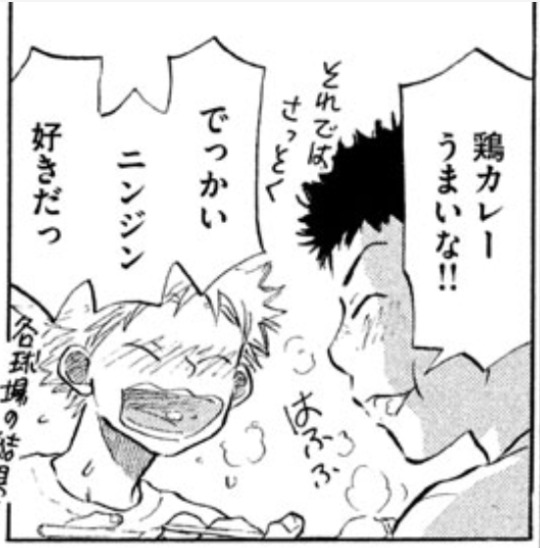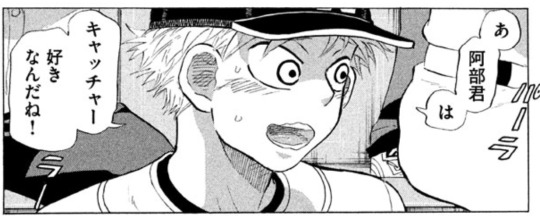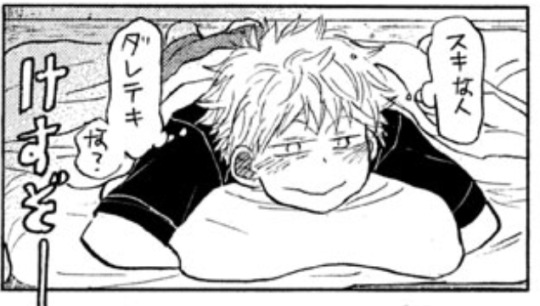#also the stress is always on the first syllabe and it's so subtle it might as well not be there at all
Note
Different Italian anon, but the thing with Tuscan C is that it's pronounced like a very strong H sound, which is extra weird cuz the letter H makes no sound in Italian, normally. It sounds the way Spanish pronounce the J. We say it's "aspirato". So then people from there will say things like Hoha Hola (coca cola), and it's funny. It's also extremely contagious, I got family in Florence, you spend 3 days with them you start doing it too before you even realize.
.
#that sounds really endearing actually#answered#anonymous#this is entirely beside the point but I still feel sort of bamboozled by languages that have silent letters#or when letters have multiple pronunciations that vary wildly from word to word#and when the sound and the letter don't seem to match like how J sounds very close to H in Spanish like you mentioned#I'm generalizing a little but none of these are really a thing in Finnish#in Finnish words are pretty much always pronounced the way they are written if that makes sense#I don't know the language terminology but I think phonetic spelling is what you call it#each letter represents a specific sound and you string those together#when you hear a word you can always tell how it's written and when you read a word you know how to pronounce it#even if you're encountering the word for the first time and have no idea what it means#it's comparatively direct and predictable there's practically no need for guessing or memorizing#also the stress is always on the first syllabe and it's so subtle it might as well not be there at all#which sometimes makes spoken Finnish and Finnish accent sound kind of monotonous there isn't a lot of intonation#I was extremely confused by the concept of spelling bees as a kid#anyway long tag ramble but this stuff is just interesting to me
182 notes
·
View notes
Text
im in the mood for an abemiha meta so im going to talk about the language use in oofuri! and by language use i mean the use of the word “like” (suki/好き/スキ)
im putting it under the cut since i gotta include some images. beware of minor manga spoilers! really, really minor though lol
first i’m going to provide an explanation of terms and stuff, and their connotations (info is from jisho.org and wordreference. i am still just a beginner in japanese but i am fairly confident in these explanations!)
a lot of you may know this but japanese has three systems of writing, which is going to be very important for my discussion! these are broken down into hiragana and katakana (referred to together as “kana”, symbols are syllabic) and kanji (written characters that represent a word/phrase) you can express japanese in writing in kana alone, but its way more common to use kanji along with kana in writing. this will be really important to my discussion, as i will be highlighting the distinction between katakana usage and kanji usage of the word “suki”
suki, written “好き” in kanji and “スキ” in katakana, is defined as: “liking; fondness; love” which can be a little confusing - the distinction between “liking” something and “loving” something isn’t quite available, so that typically necessitates context. but with written language, especially in a language with three entirely different writing systems, i think it is safe to say there are other ways of constructing that distinction.
(i can hear a distant “but gabby what about DAISUKI!!! isn’t that MORE about love?” yes and no! ive addressed this in an earlier post but in general the word “suki” is considered to be more serious and romantic, while “daisuki” is a bit more.. uh.. “extra” and frivolous)
so why would an author choose to use kana (in this particular case katakana) in place of kanji?
the kanji is difficult/obscure (gonna just say that “好” doesnt seem particularly difficult at all - it is taught in grade 4)
the author wants to stress sound of the word/emphasize the word (this is important for my interests lol)
a stylistic choice
(i picked up this info a bit from japanese language forums & from translating stuff so it might not be completely accurate but! i think this sums it up)
now that that is out of the way im going to make my bold ass claim! that in the text of oofuri (or just in mihashi speak), スキ is love, and 好き is like! i will now try to show u how i came to this very very bold conclusion:
the first instance we see of “suki” being used in the manga is when abe tells mihashi he likes him as a pitcher (bottem left bubble is “i like it”)

which is followed up by this panel:

in sequential panels, we have two different spellings of “suki”. it is made clear from the very first chapter in the manga, that (esp for mihashi) that kana “suki” and kanji “suki” have different, important implications. it seems here that mihashi is bewildered that abe would say anything like “like” to him, and writing suki as スキ only drives this home further, almost as if “like” was in bold or italicized
now this is just the first instance and only proves that katakana can be used as a tool to emphasize something, or that maybe mihashi doesn’t know the kanji for suki, or that this is how “suki” is translated to mihashi speak - but it can also set us up to look out for this distinction in the future. I’ll get to the confession scene last my dudes just hold on a minute lol
now the “this is the mihashi version of suki” theory could work if not for the fact that we have at least 2 instances of mihashi using 好き:
the first when he says he likes the big carrot chunks in the curry:

and again when he asks abe if he likes catching (i’ll say more on this in a bit):

so if mihashi didnt just learn 好き (its fair to say he always knew since hes not like illiterate dgfdg) then in this instance, “suki” doesn’t have any particular emphasis -- ie mihashi is saying “like” here
setting aside mihashis fondness for carrots is the question he asks abe which is “you like being a catcher, huh?” to which abe emphatically replies:

this is followed by mihashis conclusion, where we see the shift back to スキ:

“i see. i like pitching. and abe likes catching” (mihashi uses スキ elsewhere when he talks about his feelings towards pitching; we can pretty much assume that he loves it. thats like his whole character) mihashi wasnt sure how much abe liked catching, and after hearing abe’s response, shifts 好き to スキ. it is subtle, but it means a lot! abe likes/loves catching as much as mihashi likes/loves pitching! there wasnt really a need for clarification on the reader’s part here - we can get what abe is saying right away, but mihashi must confirm it for himself and re-confirm to the reader that “スキ” has a special meaning in this manga/to mihashi
moving on!!!!!! just to solidify, i want to show a couple more instances where スキ shows up:
here, in the word for crush: (the word crush is lit. “person you like” - interestingly, while “person”(人) is in kanji, “suki” is written in katakana)

ofc this could just be because this is handwritten, and it is easier to read handwritten kana, so perhaps it is this way for clarity (人 has 2 strokes so its not an issue, but 好 has 6 so its just a bit more complicated) BUT higuchi. (unfortunately for amateurs like me who try to translate her work) really is not opposed to handwriting more complicated kanji in her manga. i also haven’t looked hard enough but perhaps there is an instance where 好き is handwritten. dont know though!
and here, unrelated to abe and mihashi, when suzune is telling her boyfriend ookawa that she loves him (its blue cuz its an omake on the cover thats just how it is)

again, it is handwritten, but also this scene seems to rely on the emphasis provided by the katakana
and now. drumroll. im finally focking ready to talk about the confessoin scene! i have talked about how it can be read as a “confession” in this post, but i think it is definitely worth bringing up again bc it is my focking point!
maybe u already guessed (or read my other post) but when abe and mihashi tell each other they like each other it is with スキ:


am i trying to imply theyre in love already? yes and no! i think that スキ here is meant to draw our eyes to the word so we remember it well, or maybe give us a hint of what’s to come in the story (like a real confession scene between them) the two of them are very naive and dont know each other well in the beginning, but it is clear higuchi wants us to pay attention to this word and ask ourselves why it might be written in this way, and how this writing can kind of make the meaning of “suki” ambiguous
(as an aside id like to note how in the panels above, the phrase “i like you” is isolated from the rest of the sentence. as u probably know abe’s full phrase is “not just as a pitcher, i like you as a person, too!” bc of the way japanese grammar works, though, abe’s “i like you” clause out of context can work as its own sentence; and higuchi chose to give it its own bubble. mihashis “i like you” is even isolated from his “me too!” which i think is interesting. mihashis flashback later in the manga to abe’s “i like you” is segmented in exactly the same way)
also in this scene is where mihashi says he loves being a pitcher w/ スキ:

so if we add the layer that this scene is from mihashis perspective he may very well be meaning “love” in this scene, and may have even interpreted abe’s words in that way (again at the beginning we already see mihashi interpreting abe’s 好き as スキ, so perhaps he is doing it again - though it is left unclear on purpose)
make of this what you will - i could be just picking up on unimportant things. after all, “suki” absolutely isn’t the only word that is emphasized/ kana in the manga, so perhaps this is just a coincidence. but i think it is pretty significant that it is fairly consistent of a distinction in the manga, for such a loaded word, and i honestly suspect this isn’t going to be the last we see of it.
197 notes
·
View notes